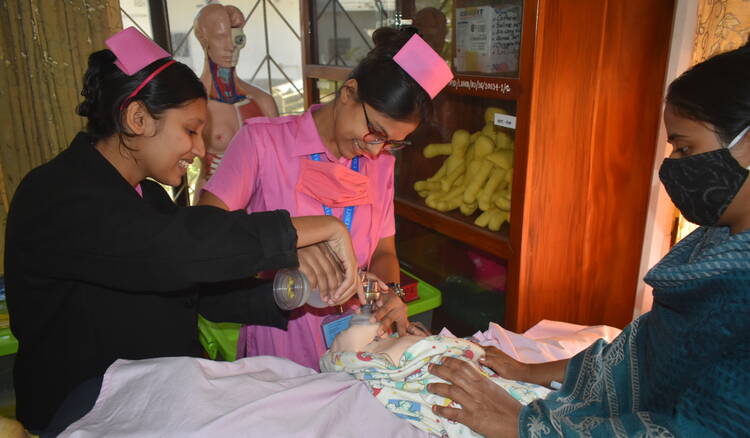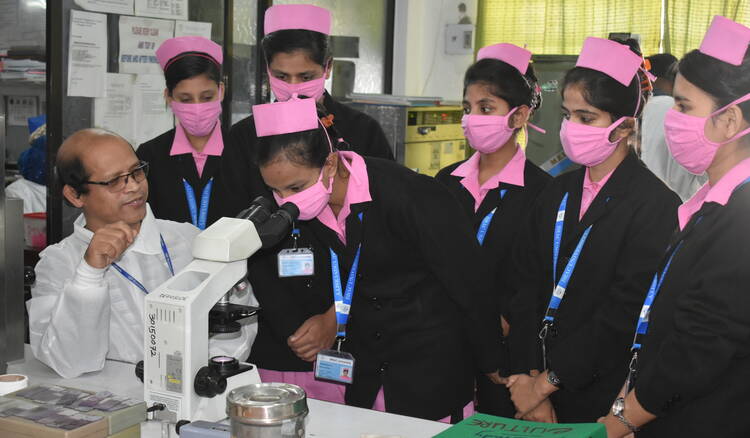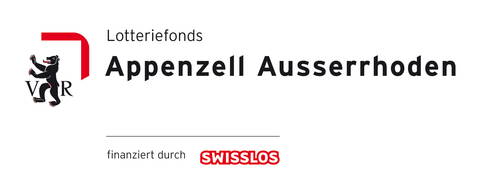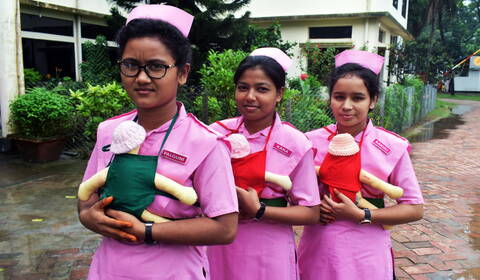Midwives for Parbatipur

In Bangladesh, maternal mortality remains high. One of the reasons is the shortage of skilled workers in the health sector. As a result, many women have to give birth without the assistance of a midwife. To improve the situation of pregnant women, the new project of Women's Hope and LAMB supports the training of midwives in Parbatipur.
Goal
Reduced maternal and infant mortality thanks to qualified midwives.
Overview
Despite efforts by the government and NGOs, maternal mortality rates remain high in Bangladesh. According to a 2017 national survey, the current rate is 173 per 10,000 live births.1 In particular, health care for rural communities remains inadequate. 63.4 percent of Bangladesh's population lives in rural areas and has limited access to healthcare. Due to the shortage of skilled labor, only 44 percent of births in Bangladesh are attended by qualified midwives. Most deaths that occur due to complications during pregnancy, childbirth or the postpartum period could be prevented by professional medical care.
What we do
For many women in the project region, midwifery remains an unrealizable dream. With the project "Midwives for Parbatipur", Women's Hope supports midwifery education at the LAMB Learning and Training Centre in Parbatipur in the northwest of Bangladesh and thus enables women from low-income families to study midwifery. Teachers at the training center also receive ongoing training so that they can pass on the latest professional knowledge in their lessons. Finally, the project team holds regular meetings with government officials and health workers to ensure the best possible collaboration. After completing the training, the graduates can make an important contribution as qualified midwives to improve maternal and infant health in their region. In addition, midwives are empowered to earn their own income and lead financially independent lives.
Our goals
Marginalized women have access to midwifery education.
The learning and training institute for midwives is empowered to provide a quality degree program.
Government agencies and health institutions are sensitized and engaged.
Sustainability
Every trained midwife can accompany and support women during pregnancy, childbirth and the postpartum period. In doing so, she contributes to improving maternal health in her community and addresses the shortage of skilled health workers. Once the midwives have found employment, they pay back part of the support they have received to the educational institution, thus giving more students the chance to get an education. In this way, support for women from lower-income families can be guaranteed even after the project ends.

Has our work convinced you? Then donate now in favour of girls and women in Africa and Asia! Thank you very much for your donation!
1National Institute of Population Research and Training (NIPORT), International Centre for Diarrhoeal Disease Research, Bangladesh (icddr,b), and MEASURE Evaluation. (2017). Bangladesh Maternal Mortality and Health Care Survey 2016: preliminary report. Dhaka, Bangladesh, and Chapel Hill, NC, USA: NIPORT, icddr,b, and MEASURE Evaluation.
Overview:
Country:
Bangladesh
Period: 01.01.2023-30.04.2025
Perparatory phase: 01.11.2022-31.12.2022
Local partner:
LAMB (Lutheran Aid Medicine in Bangladesh)
Target groups:
Midwifery students, young women from lower-income families, teachers, and health workers.
Project location:
Subdistrict Parbatipur, Bangladesh
Partner: LAMB
LAMB has been operating in Bangladesh since 1955 and is one of the major health care providers. LAMB Hospital has a catchment area of approximately 2 million people.
LAMB Learning and Training Centre
The supported educational institution is the LAMB Learning and Training Centre, which is operated by our long-term partner organization LAMB and offers various trainings and courses in the field of health. The institute has ten classrooms and provides accommodation and a canteen for up to 90 students, as well as a library with textbooks and magazines. Currently, 33 people are employed, 22 of them as teachers.
Programme Officer
Support
Support
Sponsor a midwifery student!
Through regular contribution you make it possible for a young woman to become a midwife. Thanks to your sponsored midwifery student, many mothers will experience a secure childbirth.






